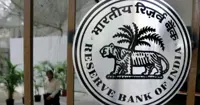Researchers discover Koro, an unknown language in northeastern India
06 Oct 2010
Researchers have discovered a hitherto unknown language that is still spoken in northeastern India. The language, Koro, little known to the world outside, is spoken by a mere 800 to 1,200 people and is on the verge of extinction, as younger speakers take to more widely spoken languages such as Hindi and English.
Koro is unique among the various branches of the Tibeto-Burman family, a collection of around 400 related languages used by peoples across Asia, two National Geographic fellows who announced the discovery, said. Their findings would be published in the journal `Indian Linguistics'.
According to the researchers, linguists K David Harrison of Swarthmore College in Pennsylvania and Gregory DS Anderson, director of the Living Tongues Institute for Endangered Languages in Salem, Ore, they are not sure of the age of the language or how old Koro is or how it developed. However, they believe the find would yield a wealth of knowledge about the way humans develop and use language.
The speakers of Koro were not known to outside observers due to their bright red garments, the rice beer they make and due to their lives being generally not much different from that of the speakers of Aka, the socially dominant language in the region, Harrison said.
He added that there was a sort of a cultural invisibility about their lifestyle as they seemed to blend in different respects with the more dominant Aka people, but they had a different word for everything.
"There's a sort of a cultural invisibility; they're culturally identical in what they wear, what they eat, the houses they live in.... They just happen to have a different word for everything," Harrison said.







.webp)























